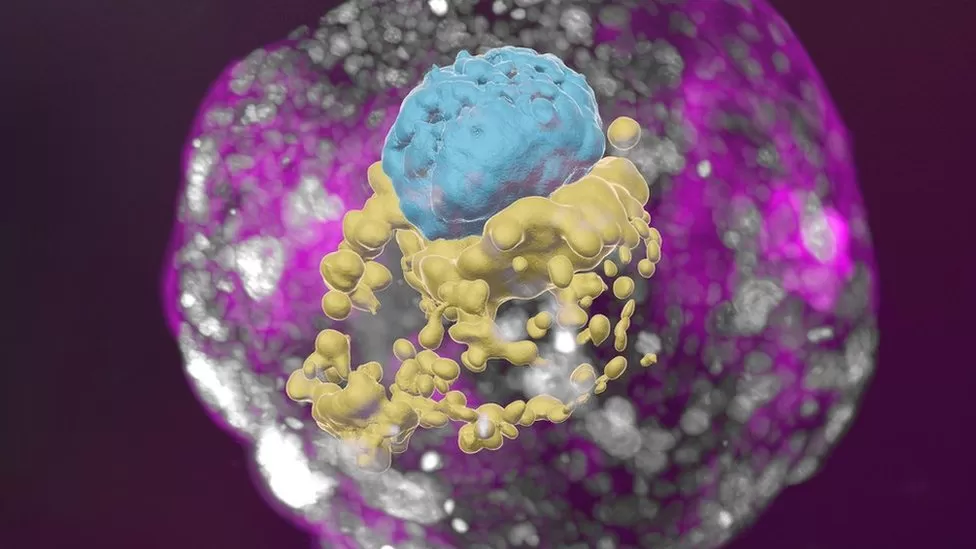Scientists have cultivated an entity bearing a striking resemblance to an early human embryo.
This is without the use of sperm, eggs, or a womb, one of its kind.
The remarkable “embryo model,” is crafted using stem cells, mirroring the appearance of a genuine 14-day-old embryo.

New discovery
The embryo models offer an ethical pathway to gain insights into the earliest stages of human life.
Importantly, the initial weeks after fertilization represent a period of astonishing transformation.
Human life
The undifferentiated cells eventually take the shape of a baby ultrasound.
Unfortunately, such critical phases are fraught with the risk of miscarriage and birth defects.
Weizmann Institute of Science emphasizes,
“Our knowledge is very limited.”
Scientists speak
Embryo research treads on a complex terrain of legal, ethical, and technical challenges.
Nevertheless, it is a rapidly advancing field.
The Israeli team characterizes their work as one of a kind.
The right mixture is key
Rather than employing sperm and eggs, they initiated the process with naïve stem cells.
Subsequently, chemicals are deployed to coax the stem cells into evolving into cell types found in the early stages of human embryos.
The process
A precise combination of 120 of these cells was blended, for the magic to unfold.
Approximately 1% of this mixture initiated a remarkable journey.
Moreover assembling themselves into a structure that closely resembled, a human embryo.
” You have to bring the right mix and have the right environment, and it just takes off,”
Prof. Hanna, awed by the phenomenon said.
The embryo models are permitted to grow and develop until they resemble embryos 14 days post-fertilization.
This marks the legal limit for standard embryo research.
Unethical boundaries
The potential of these models is immense.
Furthermore, they could help scientists unravel the emergence of different cell types.
Besides witnessing the initial stages of organ formation, they could delve into inherited and genetic diseases.
The study revealed early placenta cells need to envelop other parts of the embryo for proper development.
IVF Breakthrough
On the other hand, there are talks of enhancing in vitro fertilization (IVF) success rates.
Shedding light on why some embryos fail, or testing the safety of medications during pregnancy using these models.
However, with proximity to actual embryos comes a thicket of ethical dilemmas.
Future endeavours
These models, though not true human embryos, closely resemble them.
The researchers firmly stress that attempting pregnancy with these models would be unethical.










